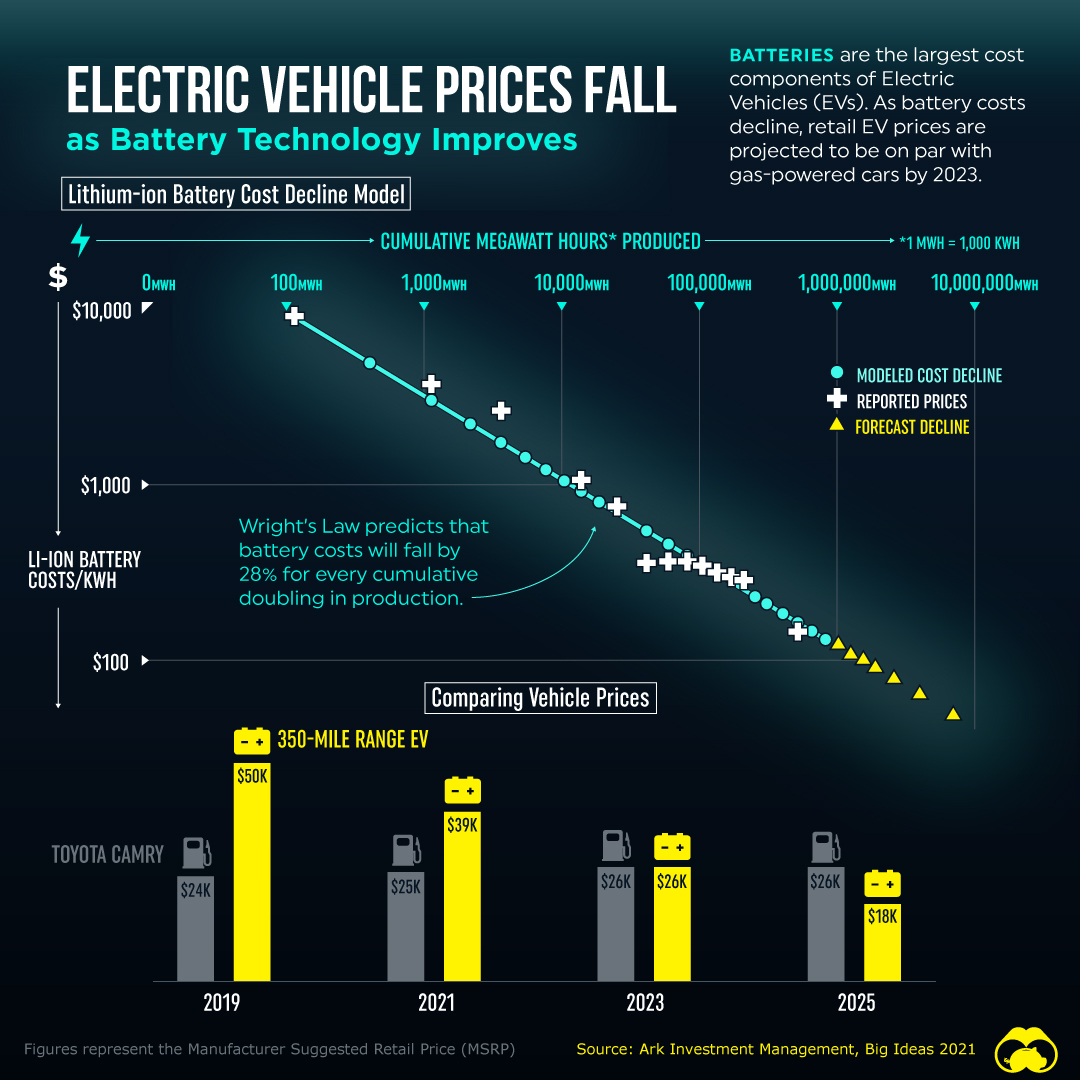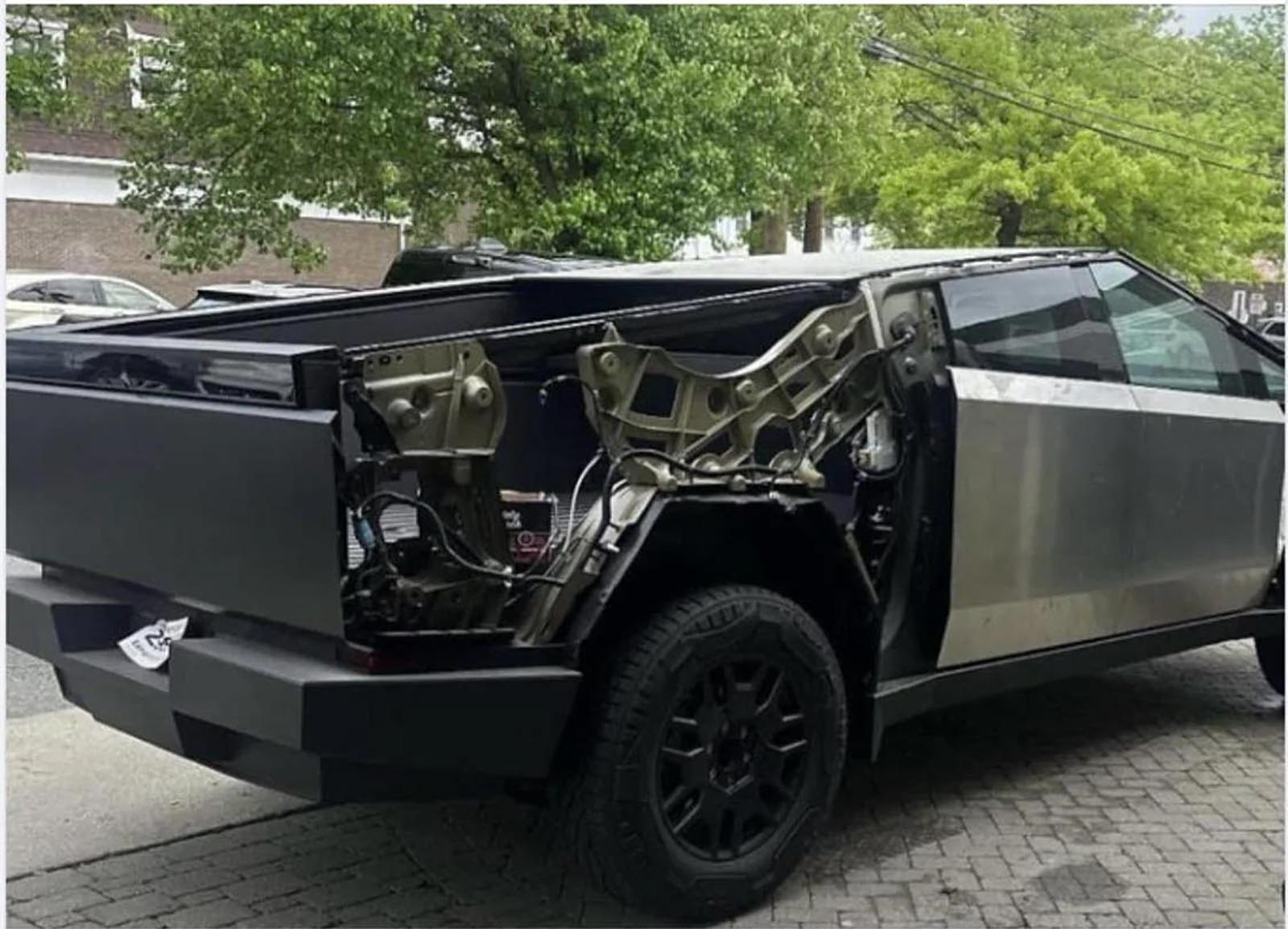wifeisafurd said:
concordtom said:
wifeisafurd said:
concordtom said:
Look, you're far smarter than me. I don't understand why you are complaining of margins. If we sat with a beer or a sandwich, I'm sure we'd get along just fine! Thumbs up.
I suspect due to technical issues, EVs will be competing against other technologies, and may lose that battle. The assumption that somehow EVs cure all their technical issues and achieve mass productions economies that advocates keep touting, has not happened yet, and may simply never happen.
Okay, now we are pivoting nicely.
What "other technologies" are you referring to? I'm stumped.
You could ask your computer since you are starting to now quite your AI in other posts. . Apple AI: Here's a more detailed look at some key technologies expected to shape the future of cars:
1. Autonomous Driving:
- Advanced Driver-Assistance Systems (ADAS):
These systems, already available in many cars, will become more sophisticated, offering features like adaptive cruise control, lane-keeping assist, and automatic emergency braking.
- Self-Driving Capabilities:
Cars will gradually move towards full autonomy (Level 5), where they can navigate and drive without human intervention.
- Robotaxis:
Autonomous vehicles could become a common form of transportation, offering on-demand ride-sharing services.
2. Electric Powertrains:
- Electric Vehicles (EVs):
EVs are expected to become increasingly popular, with advancements in battery technology leading to longer ranges and faster charging times.
- Fuel Cell Electric Vehicles (FCEVs):
Hydrogen fuel cell technology could emerge as a viable alternative, offering a longer range and faster refueling times compared to EVs.
- Hybrid Vehicles:
Hybrid technology, combining electric and gasoline engines, will continue to evolve, offering a balance of efficiency and range.
- Solid-State Batteries:
These batteries promise higher energy density, faster charging, and increased safety compared to current lithium-ion batteries.
3. Connectivity and Software-Defined Vehicles:
- Over-the-Air (OTA) Updates:
Cars will be able to receive software updates wirelessly, allowing for continuous improvements and new features.
- Connected Car Features:
Cars will be able to connect to the internet, other vehicles, and external services, enabling features like real-time traffic updates, remote diagnostics, and personalized infotainment systems.
- 5G Connectivity:
5G technology will enable faster and more reliable data transmission, supporting features like autonomous driving and connected services.
4. AI and Machine Learning:
- Predictive Maintenance:
AI algorithms can analyze vehicle data to predict potential maintenance needs, allowing for proactive repairs and reduced downtime.
- Personalized Driving Experience:
AI can learn driver preferences and adjust vehicle settings accordingly, creating a more comfortable and enjoyable experience.
- Enhanced Safety Systems:
AI can be used to improve the performance of safety systems, such as pedestrian detection and lane departure warnings.
- In-Cabin Sensing:
Using cameras, radar, and other sensors, cars can monitor the driver's attention and detect signs of fatigue or impairment, triggering safety interventions.
5. Other Emerging Technologies:
- Augmented Reality (AR):
AR technology can overlay digital information onto the real world, providing drivers with real-time navigation, hazard warnings, and other useful information.
- Holographic Displays:
Holographic displays can create immersive and interactive experiences for passengers.
- 3D Printing:
3D printing can be used to create custom vehicle parts and accessories, allowing for greater flexibility and personalization.
- Biometric Authentication:
Biometric systems, such as fingerprint or facial recognition, can be used to unlock vehicles and personalize settings.
- Composite Materials:
Lightweight and strong composite materials, like carbon fiber, can be used to reduce vehicle weight and improve fuel efficiency.
- Vehicle-to-Grid (V2G) Technology:
EVs can be used to store and distribute energy back to the grid, contributing to a more sustainable energy system.
This is a rather incomplete list, but as should. be obvious, EV technology is just one of many.
[url=https://support.google.com/websearch?p=sge_export&hl=en][/url]
[url=https://support.google.com/websearch?p=sge_export&hl=en][/url]
[url=https://support.google.com/websearch?p=sge_export&hl=en][/url]
Okay, I thought before you were saying that EVs were no good because the margins were crappy, the cost reductions weren't translating to good margins for manufacturers, and that they had still to come to compete with upcoming new technologies. So I asked what new tech.
Well, the new tech you've listed here mostly is somethings that can be added to either battery electric Powertrains or gas/diesel Powertrains. Except the mention of fuel cell and hybrid.
Fuel cell isn't going to happen, it appears. There is a problem with efficiency of green hydrogen production.
Hybrid is definitely a possibility. There is an upcoming Chinese car, I forget which, which claims to be able to get up to 1000 miles per tank. But I think this was with nightly plug-in.
So, I think you invalidated (part of) your own writing, prior.
You know, I suspect if we opened the gates to full competition, a company would fill the market slot for:
No frills, few features, full BEV. Cheap EV.
What we see instead is that manufacturers don't want to cannibalize their higher margin businesses.
Musk keeps promising.
Ford specifically says no.
US government keeps out these entrants. The claim is, often, that they are unsafe. I'd venture to guess it's a form of regulatory protectionism. Tata motors, for instance. Are these cheapos less safe than an original VW Bug, for instance? That's another can of worms… I'm not arguing for unsafe cars. But neither do I think every new vehicle sold needs the latest and greatest tech. Someone should simply produce the BEV powertain, keep passenger dry, and don't work about gadgety tech for iPhone connectivity, maps, driver assist sensors, etc.
Just produce a basic (safe) BEV transporter and you should see the price come way down, based on sunk R&D and economies of scale.
I guess I'm talking myself in circles.
More to the point:
Here are 10 cheapest gas cars from $20-25k:
https://www.cars.com/articles/here-are-the-10-cheapest-new-cars-you-can-buy-right-now-421309/#:~:text=1.,is%20standard%20on%20higher%20trims.The equivalent liste for cheapest EV starts at $29k, and that is your point.
Why is there still such a large gap, price premium for the EV powertrain? Good question!
Do we have mature competition at the low end of the market? I guess I'm saying no, not yet.
That's a good question to explore. When do we get the EV that competes with the lowest $20k car?
I'll leave that question open, and point out that if we did, cost of ownership for the EV would be less than gas. More efficient powertrain on cost of input (electricity vs gas) per mile.
Though, you were saying I'm screwed if I get in a wreck. Hmmm. I think I'll exclude that from the analysis.
This article addresses the question
"When do we get $20k EV?":https://www.motortrend.com/news/the-cheapest-toyota-ev-just-went-on-sale-in-china-for-under-20000/Google AI says:
While a definitive timeline for a $20,000 EV is uncertain, Volkswagen is planning to launch its ID.1 EV in 2027, with a base price of around 20,000 (or just over $20,000).
Here's a more detailed breakdown:
Volkswagen's ID.1 EV:
Volkswagen has confirmed plans for a new entry-level electric vehicle, likely to be called the ID.1, with a base price of around 20,000, or just over $20,000.
Launch Timeline:
The ID.1 EV is expected to arrive in 2027.
Other EV Models:
Volkswagen also plans to launch the ID.2all, which was unveiled in March 2022, in 2026, with a base price of less than 25,000.
Mazda EZ-6:
Mazda launched the EZ-6 electric sedan in China in October 2024, with a price starting at around $19,200.Here's another article of note:
https://electrek.co/2025/02/14/volkswagen-previews-20000-id-1-ev-ahead-of-march-debut/It cases me to lookup the Wikipedia page for Volkswagen Group MEB Platform.
And after reading these articles I say,
Wife, they are coming!






